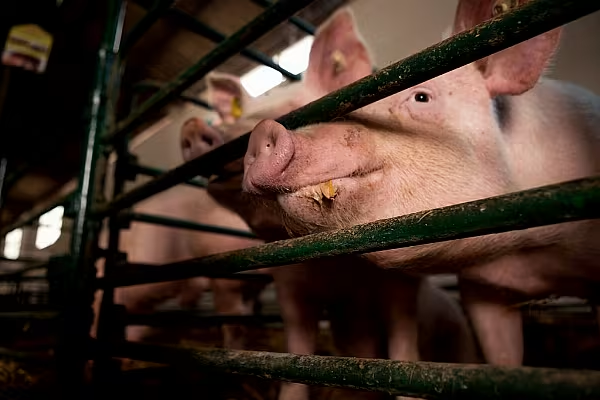China's imports of meat fell 5.4% in 2021 from the year before, customs data showed, as a surge in domestic supply of pork cut demand for overseas supplies.
More than half the meat imported by China is pork, the nation's favourite protein, while about a quarter is beef.
China brought in 9.38 million tonnes of meat last year, said the General Administration of Customs, down from 9.91 million in 2020.
Producers have boosted pork output in recent years after output was devastated by an epidemic of African swine fever in 2018 and 2019.
But the surge in supply comes amid weak demand for pork, as fewer people dine out because of a series of COVID-19 outbreaks.
Pork Prices
Domestic pork prices fell for most of last year and are down 14% in 2022, pressuring the price of exported meat too.
"Last year was tough because of the lower prices and logistics," said a leading exporter of pork and poultry to China who sought anonymity.
Though the overall value of meat imports was up 4.6%, at $32 billion, that was bolstered by beef, he added, global supply of which is tight, while pork prices have dropped, in turn pressuring chicken prices.
Weak demand and lower prices have sharply pushed down meat arrivals in recent months, while a ban on Brazilian beef from 3 September until mid-December reduced supply from China's top supplier of the commodity.
COVID-19 Measures
Tougher measures have also been adopted in recent months to keep COVID-19 from entering the country on the surface of frozen foods, said Pan Chenjun, a senior analyst at Rabobank.
December's meat imports of 654,000 tonnes were down 32% from a year ago, and lower than November's figure of 677,000 tonnes, customs said.
Imports look set to keep falling, said Pan, as domestic supply grows.
"The price cannot support further large imports," she added.
Read More: China To Levy Higher Tariffs On Pork Imports In 2022
News by Reuters, edited by ESM. For more Supply Chain news, click here. Click subscribe to sign up to ESM: European Supermarket Magazine.











